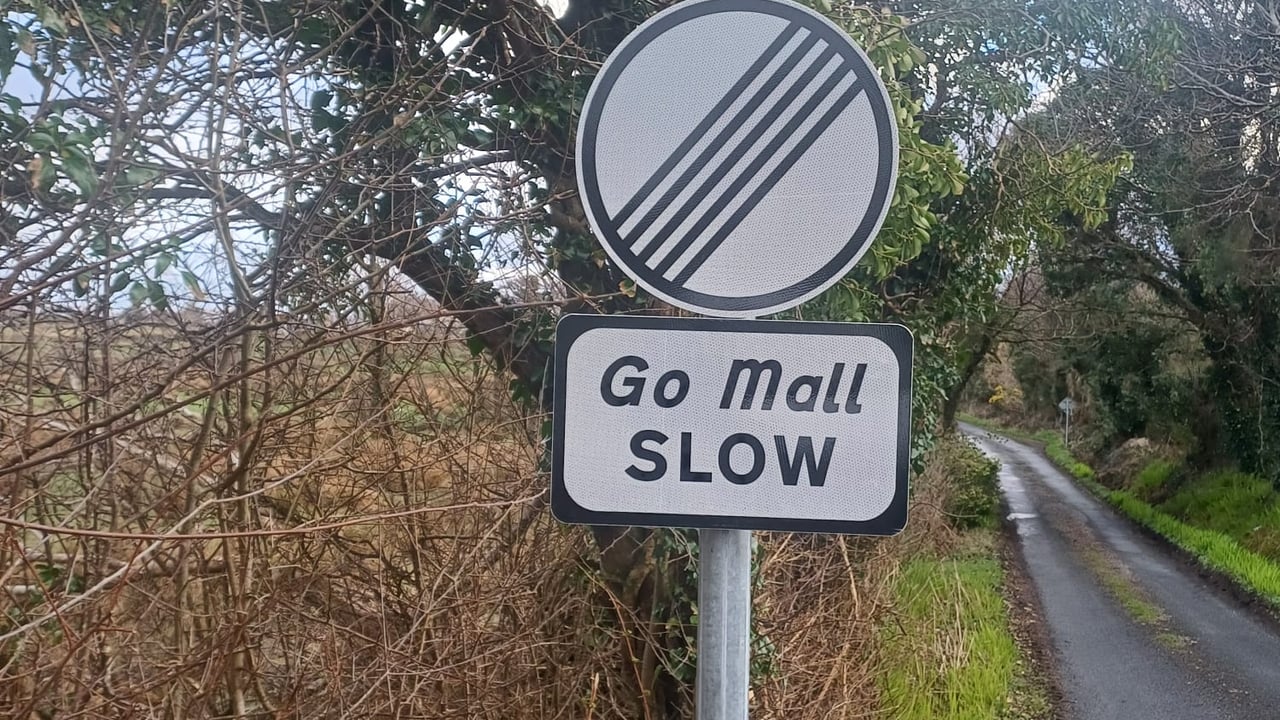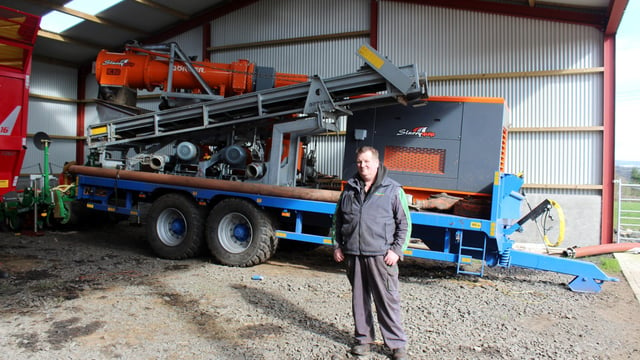Cllr. warns new rural road sign may confuse German tourists
New road signs in Co. Mayo may confuse German tourists who visit the county, according to Independent Ireland councillor, Chris Maxwell.
Earlier this year, the speed limit on many rural local roads changed from 80km/h to 60km/h as the government launched its ‘Slower Speeds, Safer Roads’ campaign.
The changes are part of Ireland’s Government Road Safety Strategy 2021–2030, which has the primary aim of reducing the number of deaths and serious injuries on Irish roads by 50% by 2030.
The new signs in Co. Mayo, feature a white disk with five diagonal lines going through the middle. It means, that the speed limit on the road is 60km/h.
On the German Autobahn, the same sign means put the "foot to the floor," Cllr Maxwell told Agriland.
"The point I was making at a Mayo County Council meeting, imagine [German tourists] turn up on these roads and they see the sign, automatically that registers with them, foot to the floor if you feel like doing it'."
According to Maxwell, people in the local community don't understand what the sign means.
"People hadn’t come across it before. From my perspective, you’d wonder why the people that think up these things couldn’t have just made it simple for the ordinary person and write 60km/h on the sign," he said.
"I know they didn’t do it to deliberately confuse people, but an awful lot of people do not know what that means," Maxwell added.
The Independent Ireland councillor has questioned the local authorities decision making in putting up the signs.
"The way I look at it, it’s common sense gone out the window with the civil servants that come up with these plans," he said.
"Who in their right mind dreamt up this without researching it? God love them, what were they thinking?
Another aspect of the signs that is frustrating councillor Maxwell, is the cost of them.
"I think the post and the disk costs €311. You have to get the council to erect it afterwards. I know it’s the Department of Transport paying for it," he said.
"If ever there was a bad accident, the tourists might say, we’re all in the EU now. Would they have a case against the Department of Transport?" he concluded.





